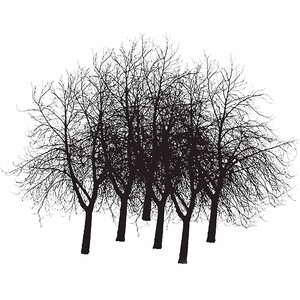Two-part special digital issue of The Society for the Diffusion of Useful Knowledge and SDUK microsite
University of Toronto Mississauga
3359 Mississauga Road
Mississauga Ontario L5L 1C6
Canada
T +1 905 828 3789
blackwood.gallery@utoronto.ca
The myriad ways the pandemic has helped to explicate a seemingly infinite list of social, economic, and environmental failures, across innumerable scales, have become increasingly apparent and extremely disconcerting. Shared concern over COVID-19 has unsteadied and inverted our world. Accordingly, as a university art gallery whose facilities are temporarily closed, we ask: how to acknowledge this pandemic as a “matter of concern,” while responding to its broad-ranging effects across our networks of artists, writers, and cultural workers as a “matter of care”?
In their recent book Now, The Invisible Committee propose “paying careful attention to situations and to the forces that inhabit and traverse beings, in conjunction with an art of decisive assemblages.” When they go on to claim that our only recourse to “transversally uniting all the elements deserting this society” depends on our fidelity to the “intelligence of the situation,” we vehemently agree. They continue, with an attention to tilting: “It is everything that makes the situation gradually understandable, everything that tracks the movements of the adversary, everything that identifies the usable paths and the obstacles. Based on that intelligence, an occasional vertical expedient needed to tilt certain situations in the desired direction can well be improvised.” (Now, 157-159) As we attempt to tilt, lean, and tip our situation, improvisation is fast becoming our organizational watchword. An urgent and provisional response comes in the form of TILTING, a special double issue of the SDUK made possible by an overwhelming response to a March 23 call for submissions.
We recognize that time is tight, resources are scarce, and struggles are intense. Here we evoke triage as one mode of doing. With TILTING we have endeavoured to create an expedient means to support those unmoored from their sources of financial resources and to conjure responses to this especially unstable moment, while simultaneously thinking about how to respond at scale. Our mandate remains the same: We support and activate artists, curators, and writers who incite us to be responsive, cooperative, critical, and answerable.
TILTING (1) Contributors
d’bi.young anitafrika, Aisha Ali, Atanas Bozdarov, Inbal Newman, Craig Rodmore & Florence Yee, Christina Battle, Adam Bierling, Alison Bremner, Eric Cazdyn, Paul Chartrand, D.T. Cochrane, Kimberly Edgar, Amy Fung, Sara Graham, Noelle Hamlyn, Paul Maheke, Andrea Muehlebach, Nicola Privato, John Paul Ricco, Sydney Shen, Ruth Skinner, Sanchari Sur.
Read the full issue on the new SDUK microsite.
TILTING (2) will be released May 1, 2020.
The Society for the Diffusion of Useful Knowledge (SDUK)
The Society for the Diffusion of Useful Knowledge is a broadsheet publication produced by the Blackwood Gallery, University of Toronto Mississauga. Its name is borrowed from an 1826 non-profit society. Both continuing and troubling the origins of the society, the Blackwood asks: what constitutes useful knowledge? For whom? And who decides? Initiated in conjunction with The Work of Wind: Air, Land, Sea in 2018–19 to expand perspectives on environmental violence, the SDUK is becoming a signature Blackwood publishing initiative in 2020.
As an organization addressing 21st-century challenges through artistic-led research, the Blackwood seeks to convene, enable, and amplify the transdisciplinary thinking necessary for understanding our current multi-scalar historical moment and co-creating the literacies required to adapt to its various socio-technical transformations. The SDUK’s lithe methodology is rooted in the arts, informed by emergent methods of curatorial research, and shaped by transdisciplinary engagements with collaborators from a host of other disciplines and partners working outside the university. This methodology is necessary for contemporary research-based practices because the so-called “wicked problems” challenging the stability of contemporary societies can no longer be addressed from a single disciplinary perspective.
Issues
01: GRAFTING, June 2018
02: COMMUTING, August 2018
03: BEARING, March 2019
04: SHORING, May 2019
05: ACCOUNTING, July 2019
06: FORGING, September 2019
07: TILTING (1), April 2020
07: TILTING (2), May 2020


